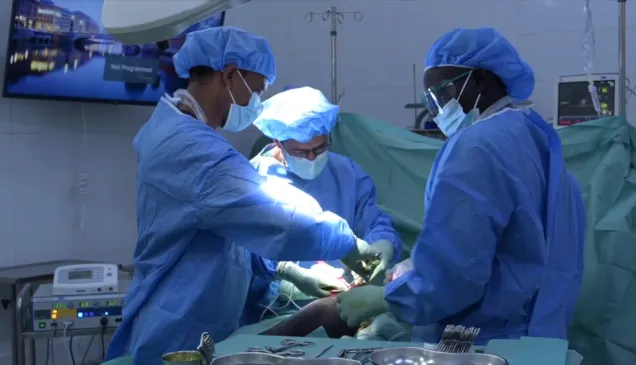Cecilia Tabu, 12, is waiting for the distribution under a tree. "Normally, our only food is leaves that we cook with salt and water. Usually, we have nothing, so today we are happy. We can finally eat something different," her mother Vajda says.
Food, seeds bring smiles to South Sudan’s children
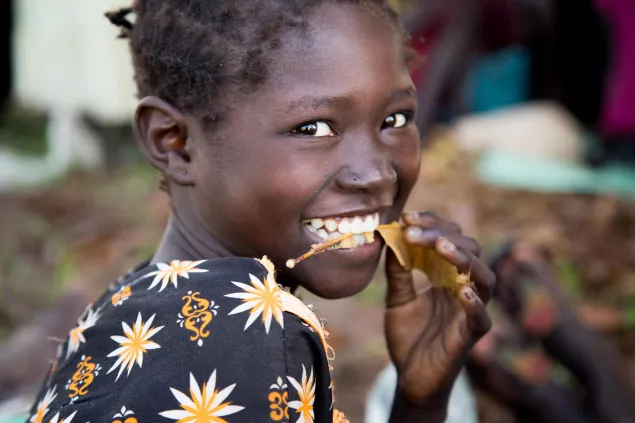
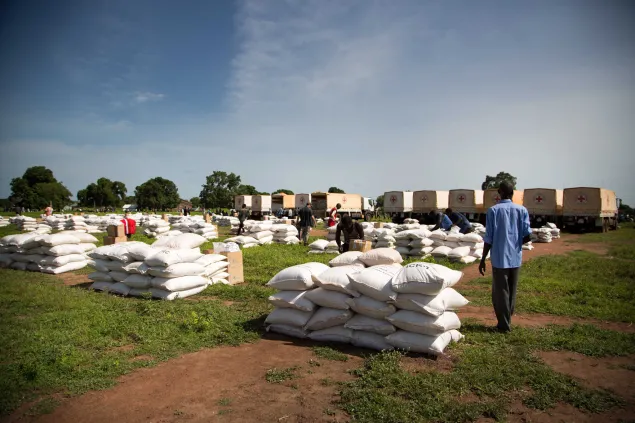
The ICRC distributed seeds, tools and food to around 13,000 people in Rokon, Central Equatoria. The area has been experiencing increased tension and pressure on the host communities, following an influx of internally displaced people.
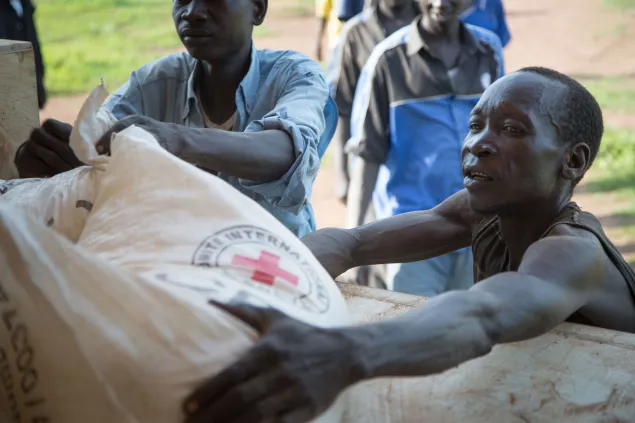
The ICRC is distributing different kinds of seeds, including ground nuts, kale, okra, onion, amaranthus and pumpkin.
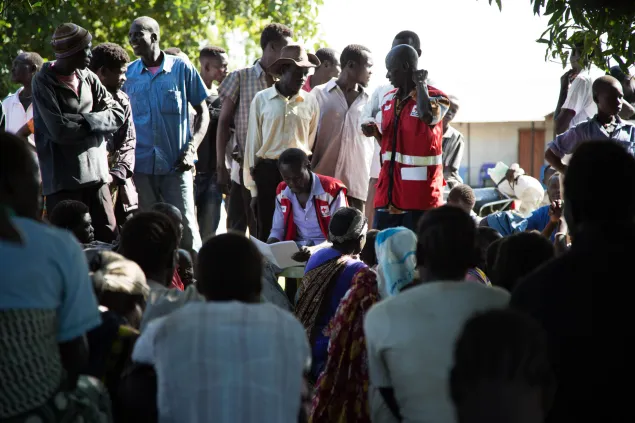
"We came here two weeks ago and registered every household. Today, we call them by their first and family names and they have to state their fathers’ name. We do this to verify their identity," Lucky Anthony, a South Sudan Red Cross volunteer, explains.
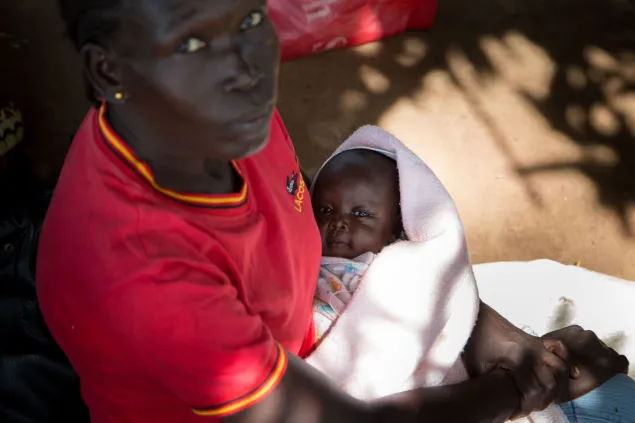
"People in the villages have nothing, so this distribution will help. Some people are dying because of hunger, but I think we will be okay now that we have got seeds and tools. The rain is also coming, so we will be able to harvest this after three months," Ester explains, while caring for her daughter Christin.
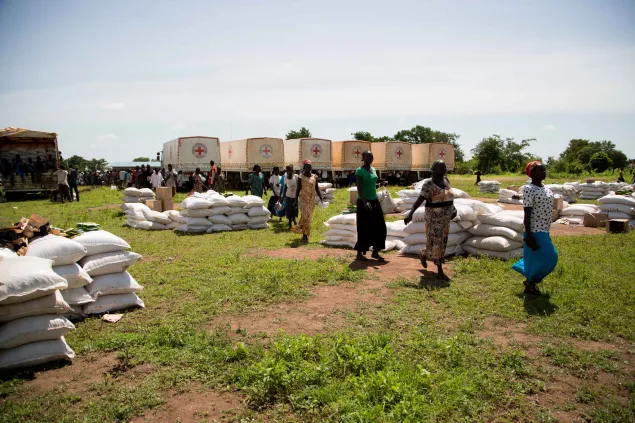
The ICRC provides rations for both the internally displaced people and the host communities. Each household gets a single portion of ration each and they are organized in groups of 20 people to share a pile from the assistance.
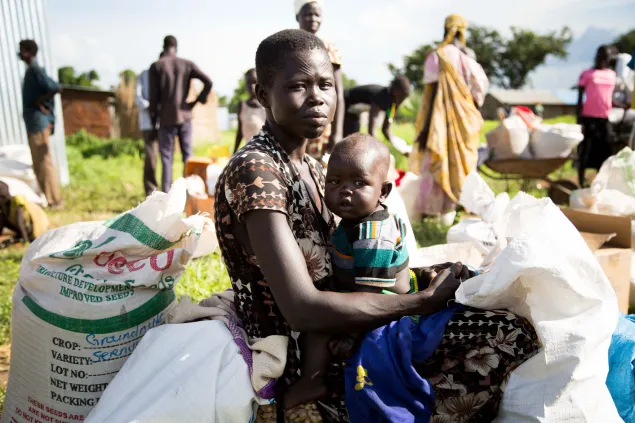
"When we have cultivated these crops, you have to come back! You deserve appreciation and we want to cook for you to thank you," says Mary, 40, sitting with her seven-month-old son, Angelo.
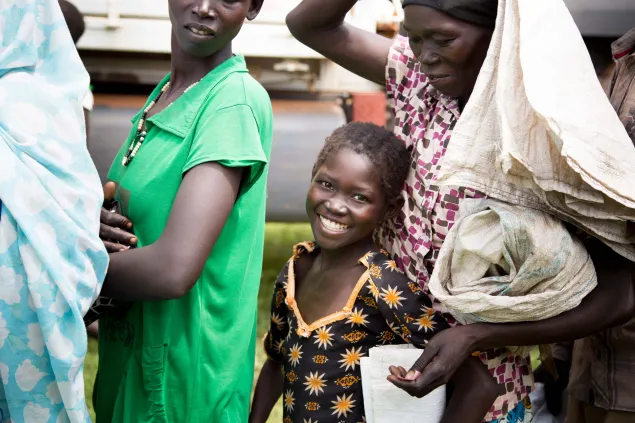
Cecilia, 12, is the middle child among five siblings. She normally goes to school in Rokon, but today is a local holiday because of the distribution. Now, she and her mother Vajda are finally in line to get their seeds, tools and food.
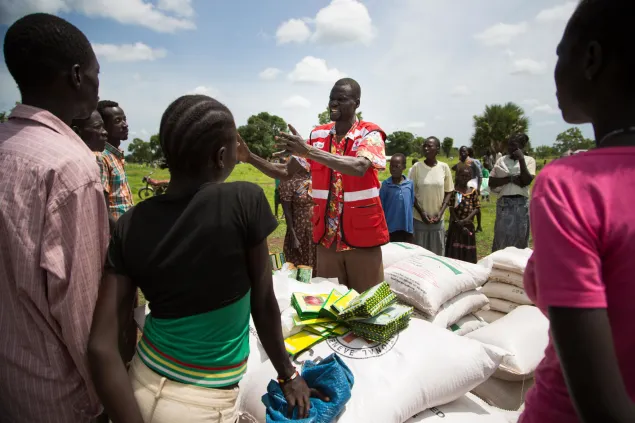
It takes a lot of preparation to ensure that the distribution is safe and fair. A South Sudan Red Cross volunteer explains how the beneficiaries should share to ensure that everyone gets a fair part and to avoid disagreements.
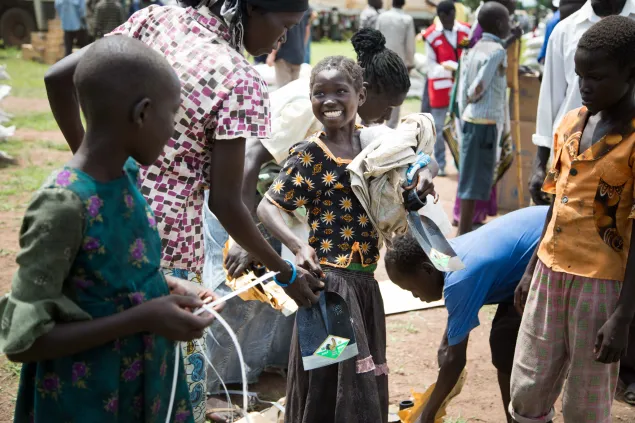
Cecilia fled her village with her mother and four siblings a year back. Her father was killed while he was collecting food for the family and after this her mother decided that their home was not safe anymore. Simple things, like a hoe for cultivation, will help her family get back on their feet.
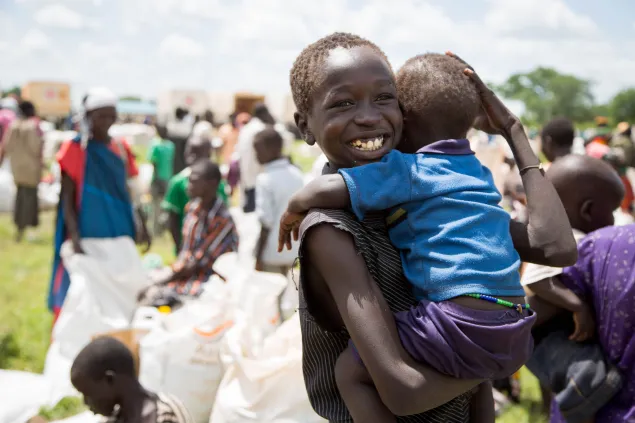
"Our life will change now that these items are distributed. It will shift from a bad to a good life. We can finally stop eating leaves, which have been causing diarrhea and making the children sick," says the mother of Oliver Layo, 12, and his brother Manuel, 3.
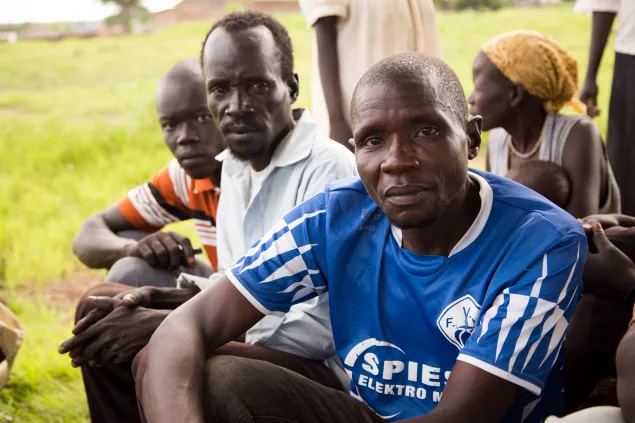
"In my home village we have rebels in the bush and the situation is not good. I miss my homeland and I hope I can go back once the crisis is over. My two girls are still there and I worry about them. They are seven and ten years old. It is difficult to reach them, because we don't have electricity and sometimes even a working phone network. I try to send food as often as I can," Charles explains.
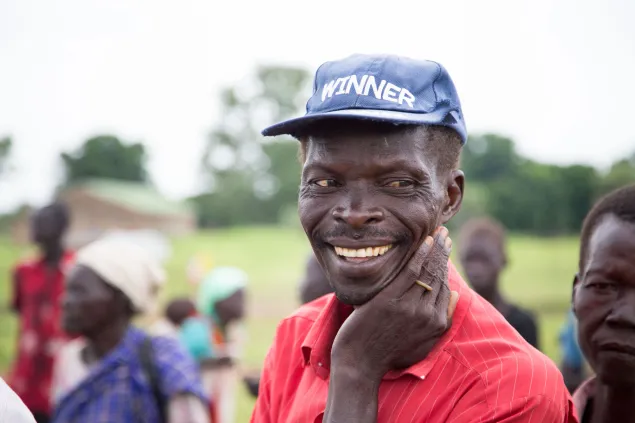
"I was operated on for hernia and when I survived, I found this cap and felt that I deserved it. I have seven children and they were all very happy when I survived. Now, the wound still hurts when I work, but I hope this distribution will help us," Henry, 42, says.
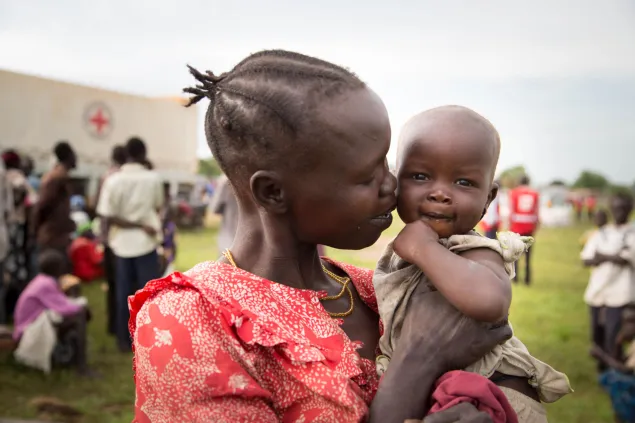
"Before the crisis, life was good. We had no hunger. Because of the drought we lost all our crops and were left with no seeds," Jennifer explains. She was first in line on the second day of the distribution and got support for her daughter Alice and her other children.
"I am no longer a happy woman. I fear I will never be happy again, as life is such a struggle," Vajda, a single mother of five, laments.
One year ago, Vajda had to flee her village in South Sudan with five young children. Her husband had been killed while getting food for the family, prompting Vajda to leave.
His death was one of thousands in the country since violence broke out in late 2013. The fighting has forced hundreds of thousands across the country to leave their homes, a flight for safety that has led to deep hunger needs.
"In my village, life used to be good," she said. Now, though, "the conflict has affected my whole life. My husband was a caring man. He was always working and helping us. Now everything depends on me."
Vajda spoke while sitting on the ground waiting for seeds, tools and food that the International Committee of the Red Cross (ICRC) is providing to 13,000 people in Rokon, central Equatoria.
Thousands of people have been forced to flee from their land and abandon their belongings in Equatoria, leaving them unable to cultivate the fertile land in the region.
Cyril Jaurena, the head of office for the ICRC in Equatoria, said that the people in this region are used to farming, but they don't have the opportunity to plant and cultivate crops now.
"By providing them with seeds and tools, we enable them to go back to farming. We also distribute rations of food so the families have something to eat before they can harvest the crops," Jaurena said.
Even though Vajda and her children are far from home, they have been given a piece of land by the host community to plant crops. "They understand that we did not come by choice," she said.



